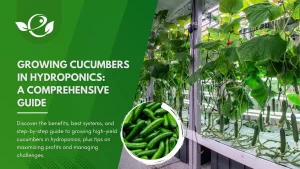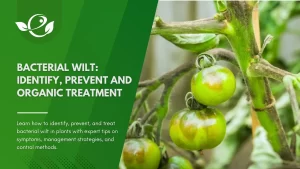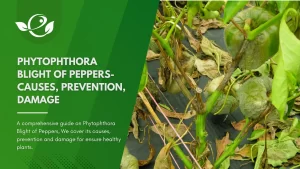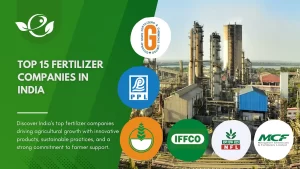Table of Contents
Greetings, fellow plant enthusiasts! Today, we’re taking a dive into the world of hydroponics, but with an eco-friendly twist – organic hydroponic nutrients. Yes, you heard that right – nutrients that are not only good for your plants but also good for Mother Earth. Who knew gardening could be such a virtuous endeavour? In this post, we’ll explore the wondrous benefits of organic hydroponic nutrients, from their ability to produce healthier and more flavorful crops to their positive impact on the environment. But first, let’s get down to the nitty-gritty and understand the key differences between organic and synthetic nutrients.
The Differences between Organic and synthetic nutrients
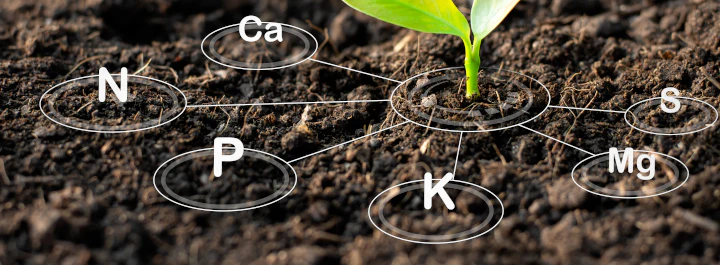
When it comes to hydroponic gardening, one key decision growers face is choosing between organic and synthetic nutrients. Both options have their advantages and considerations. Let’s explore the differences between organic and synthetic hydroponic nutrients to help you make an informed choice for your garden.
Composition and Source:
Organic hydroponic nutrients are derived from natural sources such as plant matter, animal byproducts, and minerals. They are typically produced through processes like composting, fermentation, or extraction. These nutrients contain a wide range of organic compounds, micronutrients, and beneficial microorganisms that contribute to plant health and soil fertility.
Synthetic hydroponic nutrients, on the other hand, are chemically formulated and manufactured to provide specific nutrient ratios. They are produced through industrial processes and often contain concentrated mineral salts. Synthetic nutrients are designed to deliver precise nutrient profiles, ensuring plants receive the necessary elements for growth.
Nutrient Availability:
One notable difference between organic and synthetic hydroponic nutrients is how readily available the nutrients are to plants. Synthetic nutrients are immediately soluble in water, allowing plants to absorb them quickly. This provides rapid and targeted nutrient delivery, especially in high-demand situations or for specific growth stages.
Organic nutrients, on the other hand, require microbial activity and decomposition processes to break down complex compounds into forms that plants can utilize. As a result, nutrient availability may be slower and more reliant on microbial activity and the plant’s own metabolic processes. This can lead to a more gradual release of nutrients over time.
Environmental Impact:
Organic hydroponic nutrients are often favoured for their environmental sustainability. They are derived from natural and renewable sources, reducing dependence on non-renewable resources. Organic nutrient production methods also tend to have lower carbon footprints and contribute to soil health and biodiversity.
In contrast, synthetic hydroponic nutrients are typically derived from non-renewable resources and require energy-intensive manufacturing processes. The production and use of synthetic nutrients can have a higher environmental impact, including carbon emissions and waste generation. However, advancements in sustainable manufacturing practices and the use of renewable energy sources are being explored to mitigate these concerns.
Plant Response and Taste:
Many growers appreciate the impact organic hydroponic nutrients have on plant response and taste. Organic nutrients often promote slower, more balanced growth, which can result in stronger plants with improved flavours, aromas, and nutrient content. The presence of beneficial microorganisms in organic nutrients also enhances soil health and contributes to a holistic plant ecosystem.
Synthetic hydroponic nutrients can produce rapid growth and high yields due to their precise nutrient composition. However, the taste and nutritional profile of plants grown with synthetic nutrients may sometimes be perceived as lacking compared to those grown with organic nutrients.
Regulatory Considerations:
Depending on your location, there may be regulations governing the use of organic or synthetic hydroponic nutrients. Organic hydroponic nutrients often adhere to organic certification standards and must meet specific criteria for inputs, production methods, and labelling. Synthetic hydroponic nutrients may have their own regulations regarding labelling, safety, and concentration limits.
It’s important to familiarize yourself with local regulations and certification programs to ensure compliance and alignment with your desired growing practices.
In summary, organic and synthetic hydroponic nutrients differ in their composition, nutrient availability, environmental impact, plant response, and regulatory considerations. The choice between organic and synthetic nutrients ultimately depends on your specific goals, preferences, and the demands of your plants. Consider factors such as sustainability, taste, and certification requirements when making your decision.
Advantages of Using Organic Hydroponic Nutrients
Chemical-free and Environmentally Friendly
One of the biggest perks of organic hydroponic nutrients is their chemical-free nature. Gone are the days of fretting over mysterious compounds and unpronounceable elements. With organic nutrients, you can say goodbye to synthetic nutrients and embrace a more natural approach. Not only is this better for the environment, but it also helps create a healthier growing environment for your beloved plants. No harsh chemicals mean no worries about potentially harmful residues seeping into your crops. It’s a win-win for both you and Mother Earth!
Safe for Consumption
Imagine plucking a ripe, juicy tomato from your hydroponic garden and taking a big, satisfying bite, knowing that it was nourished with nothing but organic goodness. Organic hydroponic nutrients provide you with peace of mind when it comes to the safety of your harvest. These nutrient solutions are designed to promote plant health without compromising the quality and safety of the fruits, vegetables, or herbs you grow. So, rest easy knowing that what you grow is not only delicious but also safe for you and your loved ones to savour.
More Sustainable and Affordable than Chemical Fertilizers
Sustainability and affordability—are two words that can make any gardener’s heart skip a beat. Organic hydroponic nutrients offer a greener and more cost-effective alternative to their chemical counterparts. By utilizing natural ingredients and eco-friendly practices, organic nutrients help minimize the carbon footprint associated with traditional farming methods. Furthermore, their availability and affordability make them an attractive choice for both hobbyist gardeners and commercial growers alike. So, say goodbye to spending a fortune on fancy chemical fertilizers and hello to a more sustainable and pocket-friendly gardening journey!
Promotes Soil Health and Fertility
While hydroponic gardening may not involve traditional soil, organic hydroponic nutrients still contribute to the overall health and fertility of your growing medium. These nutrient solutions are formulated with organic matter, such as compost extracts and natural amendments, which improve the structure and nutrient-holding capacity of your hydroponic system. By nurturing the health of your growing medium, organic hydroponic nutrients ensure that your plants receive the necessary elements in a well-balanced and sustainable manner.
Rich in Microorganisms and Beneficial Bacteria
Behind the scenes of organic hydroponic nutrients lies a hidden army of microorganisms and beneficial bacteria, working tirelessly to support your plant’s growth. These tiny heroes enhance nutrient availability, aid in nutrient absorption, and help suppress harmful pathogens. By incorporating organic matter into the nutrient solutions, you’re essentially inviting a microbial party that contributes to a thriving and harmonious root zone. So, let’s raise a glass (or a nutrient solution) to these unsung heroes of hydroponics!
Reduces Chemical Buildup in Plants
We all know that excessive use of chemical fertilizers can leave a nasty residue behind. However, organic hydroponic nutrients provide a refreshing alternative. By focusing on natural, plant-friendly ingredients, they reduce the risk of chemical buildup in your plants. This means cleaner, healthier, and more vibrant crops that are free from the baggage of synthetic residues. It’s like giving your plants a detox vacation, allowing them to reach their full potential without any unwanted baggage.
Promotes Plant Growth
Looking for a growth spurt in your garden? Organic hydroponic nutrients are here to lend a helping hand. Packed with essential elements and trace minerals, these nutrients provide the fuel your plants need to reach new heights. Watch in awe as your plants thrive and flourish under the nurturing care of organic goodness.
No Synthetic Pesticides or Herbicides are Needed
With organic hydroponic nutrients, you can bid farewell to those pesky synthetic pesticides and herbicides. The natural ingredients in organic nutrient solutions work in harmony with your plants, building their natural defences and resilience against pests and weeds. This not only reduces the need for chemical interventions but also creates a safer environment for beneficial insects and pollinators to thrive. So, let your garden become a haven for ladybugs, bees, and butterflies, as they happily coexist with your flourishing plants.
Minimal pH Fluctuations
Maintaining the optimal pH level in hydroponic systems can sometimes feel like a delicate balancing act. However, organic hydroponic nutrients can make this task a little less daunting. These nutrients are designed to naturally buffer and stabilize the pH of the nutrient solution, minimizing fluctuations that can stress your plants. By providing a more stable pH environment, organic nutrients help create a harmonious and stress-free growing environment for your hydroponic garden.
| Know more about “The Importance of pH in Hydroponic Nutrient Solutions“ |
Produces Healthier and Tastier Plants
Prepare your taste buds for a flavor explosion! Organic hydroponic nutrients work their magic, infusing your plants with a symphony of nutrients and minerals. The result? Healthier and tastier crops that leave your senses dancing with joy. From succulent strawberries to robust basil leaves, get ready to savor the true essence of nature’s delicious bounty.
Increases Yield and Quality of Harvest
Bumper harvests await! By nourishing your plants with organic hydroponic nutrients, you’re providing them with the optimal conditions for growth and development. The result is an abundant yield of high-quality, nutrient-dense produce that will make your garden the envy of all your green-thumbed friends. Get those baskets ready, because it’s harvest time like never before!
Reduced Water Usage
Water scarcity is a growing concern and every drop counts. Luckily, organic hydroponic nutrients can help you conserve this precious resource. These nutrient solutions are designed to be highly efficient, ensuring that your plants receive the necessary nourishment without wasteful water runoff. By reducing water usage, organic hydroponic nutrients allow you to cultivate a more sustainable garden that minimizes environmental impact.
So there you have it, fellow hydroponic enthusiasts – the marvellous advantages of using organic hydroponic nutrients. From promoting environmental sustainability to yielding healthier and more flavorful crops, these organic wonders have the power to transform your hydroponic garden into a thriving oasis of green goodness.
Types of Organic Hydroponic Nutrients
Welcome to the world of organic hydroponic nutrients, where science and nature converge to optimize plant growth. In this section, we’ll explore a variety of organic options, from compost tea to seaweed extract, unlocking the secrets behind their remarkable benefits. Join us on this journey to harness the power of organic hydroponics and unlock your garden’s true potential. Let’s dive in and discover the transformative effects of these natural wonders.
Compost Tea:
Compost tea is a popular organic hydroponic nutrient made by steeping compost in water to extract beneficial microorganisms, nutrients, and minerals. It serves as a natural fertilizer, supplying a rich blend of organic matter, beneficial bacteria, and fungi to your hydroponic system. Compost tea promotes root health, enhances nutrient uptake, and contributes to overall plant vigour.
Seaweed Extract:
Derived from seaweed and kelp, seaweed extract is a nutrient-rich organic supplement for hydroponic plants. Packed with trace minerals, growth hormones, and vitamins, it stimulates plant growth, strengthens roots, and improves nutrient absorption. Seaweed extract also enhances plants’ resistance to stressors like drought, pests, and diseases, making it a valuable addition to any hydroponic nutrient regimen.
Fish Emulsion:
Fish emulsion, as the name suggests, is made from decomposed fish or fish byproducts. This organic hydroponic nutrient is rich in nitrogen, phosphorus, and potassium, providing a well-balanced fertilizer for your plants. It promotes vigorous growth, supports flowering and fruiting, and improves overall plant health. Plus, fish emulsion adds a touch of oceanic aroma to your hydroponic garden—just be prepared for your plants to start humming “Under the Sea.”
Bat Guano:
While it may sound batty, bat guano is actually a valuable organic hydroponic nutrient source. Bat droppings, collected from caves, provide a potent mix of nitrogen, phosphorus, and potassium, as well as beneficial microorganisms. It’s a slow-release fertilizer that improves soil structure, stimulates root development, and boosts nutrient absorption. So, if you’re looking to give your plants a guano-terrific growth spurt, bat guano might be your secret weapon.
Worm Castings:
Worm castings, also known as vermicompost, are a fantastic organic hydroponic nutrient option. These nutrient-rich pellets are the result of earthworm digestion, packing a powerful punch of beneficial bacteria, enzymes, and organic matter. Worm castings improve soil structure, enhance nutrient availability, and stimulate plant growth. They’re like a gourmet feast for your plants, courtesy of your underground worm workforce.
Bone Meal:
Bone meal is a natural hydroponic nutrient derived from animal bones, typically from cattle or fish. It’s a slow-release source of phosphorus and calcium, essential elements for root development, flowering, and fruiting. Bone meal enriches the nutrient profile of your hydroponic solution, contributing to strong, healthy plants and robust harvests.
Blood Meal:
If you’re looking to give your plants a nitrogen boost, blood meal has got you covered. Made from dried animal blood, typically from cattle or poultry, blood meal is a potent source of nitrogen. It promotes lush, green foliage, stimulates plant growth, and supports overall plant health. Just be careful not to attract any vampire plants with its alluring scent!
Feather Meal:
Feather meal, another nitrogen-rich organic hydroponic nutrient, is made from hydrolyzed poultry feathers. It breaks down slowly, providing a steady release of nutrients to your plants. Feather meal supports vegetative growth, aids in chlorophyll production, and contributes to healthy, vibrant foliage. It’s like giving your plants a fluffy featherbed to grow upon.
Other organic hydroponic nutrients may include alfalfa meal, crab meal, shrimp meal, rock phosphate, and various natural mineral amendments. Each of these organic options offers unique benefits and nutrient profiles, allowing you to tailor your hydroponic nutrient regimen to the specific needs of your plants.
Incorporating a diverse range of organic hydroponic nutrients into your nutrient solution ensures a comprehensive and balanced diet for your plants. Experimenting with different combinations and ratios of these organic supplements can help you fine-tune your nutrient regimen to achieve optimal results.
It’s important to note that when using organic hydroponic nutrients, proper preparation and filtration methods are crucial to prevent clogging and maintain the cleanliness of your hydroponic system. Many of these organic nutrients are available in liquid or powdered form, making them easy to dissolve and incorporate into your nutrient solution.
Remember, the key to successful hydroponic gardening lies in finding the right balance of nutrients, monitoring your plants’ progress, and making adjustments as needed. Organic hydroponic nutrients provide a natural and sustainable way to nourish your plants while minimizing the use of synthetic chemicals.
So, whether you’re brewing a batch of compost tea, harnessing the power of seaweed extract, or tapping into the nutrient-rich potential of bat guano, embrace the wonders of organic hydroponic nutrients. Your plants will thank you with vigorous growth, abundant harvests, and a burst of natural vitality.
In conclusion, the world of organic hydroponic nutrients offers a diverse range of options to nourish your plants in an eco-friendly and sustainable manner. By incorporating these organic supplements into your hydroponic system, you can enjoy the benefits of chemical-free gardening, while promoting soil health, enhancing plant growth, and reaping the rewards of healthier and tastier harvests.
Choosing the Right Organic Hydroponic Nutrients
When it comes to selecting the perfect organic hydroponic nutrients for your plants, a few key considerations can make all the difference. Let’s explore the essential factors to keep in mind to ensure optimal growth and success in your hydroponic garden.
Understanding the Nutrient Requirements of Your Plants:
Every plant has unique nutrient requirements at different stages of growth. Before choosing organic hydroponic nutrients, familiarize yourself with the specific needs of your plants. Consider factors such as nitrogen, phosphorus, potassium, and micronutrient requirements, as well as the ideal pH range for their growth. This knowledge will guide you in selecting the most appropriate nutrient formulations for your plants’ overall health and development.
Considering the Nutrient Content and Availability:
When comparing organic hydroponic nutrients, carefully evaluate their nutrient content. Look for products that provide a balanced blend of essential elements and micronutrients required by your plants. Additionally, consider the availability of these nutrients in the organic form. Ensure that the nutrients are easily absorbed and utilized by your plants, promoting efficient growth and optimal nutrient uptake.
Determining the Appropriate Ratios of Nutrients:
Maintaining the correct ratio of nutrients is crucial for healthy plant development. Different plants have varying nutrient ratios that they thrive in. Choose organic hydroponic nutrient solutions that offer customizable ratios or products specifically formulated for your plants’ needs. This allows you to fine-tune the nutrient composition to achieve the desired growth and maximize your plants’ potential.
Ensuring the Nutrients are Compatible with Your Hydroponic System:
Compatibility between your chosen organic hydroponic nutrients and your hydroponic system is essential for smooth operations. Consider factors such as solubility, potential for clogging, and ease of mixing. Some organic nutrients may require additional filtration or preparation methods to prevent blockages in your system. Select nutrients that align with the requirements and capabilities of your hydroponic setup, ensuring seamless integration and optimal nutrient delivery.
Evaluating the Cost and Availability:
While organic hydroponic nutrients offer numerous benefits, it’s important to consider the cost and availability of the products you choose. Compare prices among different brands and suppliers to find a balance between affordability and quality. Additionally, ensure that the nutrients you select are readily available for ongoing use, avoiding any disruptions to your nutrient supply during critical growth stages.
Read Reviews and Do Research Before Purchasing:
Before making a final decision, take the time to read reviews and conduct thorough research on the organic hydroponic nutrients you are considering. Seek feedback from experienced hydroponic gardeners or consult reliable sources to gather insights on the effectiveness and performance of the products. This information will provide valuable guidance, helping you make an informed choice that aligns with your goals and expectations.
By carefully considering these factors, you can confidently select the right organic hydroponic nutrients that will meet your plants’ requirements and set the stage for thriving growth in your hydroponic garden. Remember, knowledge, research, and informed decision-making are key to achieving remarkable results.
So, equip yourself with the necessary understanding, explore your options, and choose wisely. Your plants will thank you with vibrant foliage, bountiful harvests, and the satisfaction of knowing you’ve provided them with the very best in organic hydroponic nutrition.
Common Issues with Organic Hydroponic Nutrients
While organic hydroponic nutrients offer a host of benefits, it’s important to be aware of potential challenges that may arise. Let’s explore some common issues that can occur when using organic hydroponic nutrients and discuss strategies for addressing them effectively.
Nutrient Deficiencies and Toxicities:
Maintaining the right balance of nutrients is crucial for optimal plant growth. With organic hydroponic nutrients, nutrient deficiencies or toxicities can occur if the nutrient solution lacks certain essential elements or if the concentrations become too high. Regularly monitor your plants for signs of nutrient imbalances, such as yellowing leaves or stunted growth. Adjust nutrient levels accordingly, ensuring a balanced nutrient solution that meets your plants’ needs without causing harm.
Contamination with Pathogens or Heavy Metals:
Organic hydroponic nutrients derived from natural sources can carry the risk of contamination with pathogens or heavy metals. To mitigate this, source your organic nutrients from reputable suppliers who follow strict quality control measures. Additionally, consider implementing preventive measures such as regular testing of nutrient solutions and using sterile growing mediums to minimize the risk of contamination. By being vigilant and proactive, you can safeguard your plants’ health and avoid potential issues.
Addressing pH and EC Imbalances in Nutrient Solutions:
Maintaining the correct pH and electrical conductivity (EC) levels in your nutrient solution is vital for nutrient uptake and plant health. Organic hydroponic nutrients may have varying effects on pH and EC levels due to their composition. Regularly monitor and adjust the pH and EC of your nutrient solution to ensure they are within the optimal range for your plants. Use pH adjusters or dilution methods to fine-tune the solution and create a stable and conducive environment for nutrient absorption.
Inconsistent Nutrient Availability:
Organic hydroponic nutrients can sometimes have slower release rates compared to their synthetic counterparts. This may result in fluctuations in nutrient availability, particularly in the early stages of plant growth. To address this, consider supplementing with additional organic fertilizers or incorporating slow-release organic amendments into your growing media. This helps provide a steady supply of nutrients to support your plants’ development throughout their growth cycle.
It’s important to remember that each hydroponic system and plant species may have unique requirements and challenges. Regular monitoring, adjustment, and fine-tuning of nutrient solutions are essential to ensure optimal nutrient availability and prevent issues from arising.
By staying proactive, observing your plants closely, and making necessary adjustments, you can overcome common challenges associated with organic hydroponic nutrients. With patience, practice, and a keen eye, you’ll develop the expertise needed to provide your plants with a balanced and nurturing environment for exceptional growth and abundant yields.
In the next section, we’ll discuss troubleshooting techniques and best practices to help you overcome these issues and cultivate a thriving hydroponic garden that thrives on the benefits of organic nutrition.
| Know more about “How to Troubleshoot Problems in Hydroponic Nutrients Solution“ |
Troubleshooting Techniques and Best Practices
In the world of hydroponics, even the most seasoned growers can encounter challenges. But fear not! Armed with the right knowledge and strategies, you can overcome these hurdles and nurture your plants to their fullest potential. Let’s explore some troubleshooting techniques and best practices to help you address common issues with organic hydroponic nutrients.
Conduct Regular Monitoring and Observation:
Keep a watchful eye on your plants. Regularly inspect them for any signs of nutrient deficiencies or imbalances. Look for yellowing leaves, stunted growth, or any unusual discolouration. Catching these issues early allows you to take prompt action and make necessary adjustments to your nutrient solution.
Adjust Nutrient Levels Gradually:
When addressing nutrient deficiencies or imbalances, it’s important to make adjustments gradually. Rapid changes in nutrient levels can shock your plants and lead to further stress. Make incremental changes over several days or weeks, allowing your plants to acclimate to the new nutrient composition.
Supplement with Organic Amendments:
To enhance nutrient availability and address the slow-release properties of organic hydroponic nutrients, consider supplementing with additional organic amendments. These can include compost, worm castings, or specific organic fertilizers. These amendments provide a rich source of nutrients and microbial activity, promoting healthy root development and nutrient absorption.
Maintain Proper pH and EC Levels:
pH and EC play critical roles in nutrient uptake and plant health. Regularly monitor and adjust pH levels to ensure they remain within the optimal range for your plants. Utilize pH adjusters, such as organic acids or bases, to fine-tune the pH of your nutrient solution. Similarly, monitor and adjust the EC levels to maintain the desired nutrient strength for your plants’ growth stage.
Implement Good Hygiene Practices:
Maintaining a clean and hygienic environment is crucial to prevent contamination and ensure the health of your plants. Regularly sanitize your hydroponic system, tools, and equipment to minimize the risk of pathogens or harmful microorganisms. This includes sterilizing growing mediums, washing containers, and maintaining proper airflow to prevent the growth of unwanted organisms.
Seek Expert Advice and Learn from Experience:
Don’t hesitate to reach out to experienced hydroponic gardeners, join online forums, or consult reputable sources for guidance and advice. Sharing experiences and knowledge can provide valuable insights and solutions to challenges you may encounter. Additionally, keep a gardening journal to track your progress, noting any successful techniques or adjustments you’ve made along the way.
Remember, every garden is unique, and it takes time to fine-tune your hydroponic system. Patience, observation, and adaptability are key. Embrace the learning process and view challenges as opportunities to refine your skills and improve your gardening practices.
With these troubleshooting techniques and best practices in your arsenal, you’re well-equipped to tackle common issues with organic hydroponic nutrients. Nurture your plants with care, maintain a keen eye for their needs, and celebrate the rewards of a flourishing, organic hydroponic garden.
In the next section, we’ll explore advanced tips and innovative techniques to take your organic hydroponic gardening to the next level, ensuring remarkable yields and a truly sustainable approach to cultivation.
Advanced Tips and Innovative Techniques for Organic Hydroponic Gardening
Congratulations! By embracing organic hydroponic gardening, you’ve embarked on a remarkable journey towards sustainable and bountiful harvests. Now, let’s take your skills to the next level with advanced tips and innovative techniques that will elevate your organic hydroponic garden to new heights. Get ready to unleash your inner green thumb and dive into these exciting possibilities.
Embrace Aquaponics:
Expand your horizons by integrating aquaponics into your hydroponic system. Aquaponics combines hydroponics with aquaculture, creating a mutually beneficial relationship between fish and plants. The fish waste provides essential nutrients for the plants, while the plants filter and purify the water for the fish. This symbiotic approach maximizes resource utilization and promotes a closed-loop ecosystem that thrives on organic principles.
Experiment with Companion Planting:
Harness the power of companion planting to create a harmonious and synergistic environment in your hydroponic garden. Certain plant combinations can enhance nutrient uptake, deter pests, and improve overall plant health. For example, pairing basil with tomatoes or marigolds with cucumbers can boost growth and repel harmful insects naturally. Explore different companion plant combinations to discover the benefits they bring to your garden.
Implement Organic Pest Control:
Protect your plants from pests using organic pest control methods. Introduce beneficial insects like ladybugs or lacewings, which prey on common garden pests such as aphids or mites. Utilize neem oil, insecticidal soaps, or homemade organic sprays to control pest populations effectively. By avoiding synthetic pesticides, you maintain the integrity of your organic hydroponic system and ensure the safety of your produce.
Optimize Lighting and Environmental Conditions:
Fine-tune your lighting and environmental conditions to create an optimal growth environment for your plants. Invest in high-quality LED grow lights that provide a balanced spectrum and energy-efficient lighting. Monitor temperature and humidity levels to ensure they fall within the optimal range for your plant species. Creating a stable and controlled environment will promote vigorous growth and maximize your yields.
Incorporate Organic Amendments:
Enhance nutrient availability and enrich your growing medium by incorporating organic amendments. Vermicompost, coconut coir, and composted organic matter can improve soil structure, retain moisture, and provide a slow release of essential nutrients. These organic amendments enhance the overall health of your plants and contribute to the sustainability of your hydroponic system.
Experiment with Nutrient Tea Brews:
Delve into the world of nutrient tea brews to unlock additional benefits for your plants. Compost tea, made by steeping compost in water, is a powerful source of beneficial microorganisms that promote plant health and strengthen the root system. Other nutrient teas, such as seaweed or alfalfa tea, can provide essential growth stimulants and micronutrients. Experiment with different tea recipes to find the ones that work best for your plants.
Practice Crop Rotation:
Implement crop rotation techniques in your hydroponic garden to prevent nutrient depletion and minimize the risk of disease. By rotating your plant varieties in different growing cycles, you optimize nutrient uptake and reduce the likelihood of soil-borne pathogens building up. This practice helps maintain soil health and encourages long-term sustainability in your hydroponic system.
By embracing these advanced tips and innovative techniques, you’re taking your organic hydroponic gardening to new frontiers. Embrace the creativity and experimentation that come with being a passionate gardener, and remember to keep learning and adapting as you explore the possibilities.
In the final section of this blog, we’ll wrap up our journey and leave you with some inspiring closing thoughts. Get ready to reflect on the transformative power of organic hydroponics and the endless potential it holds for you.
Thats It!
As we conclude our exploration of organic hydroponics, it’s clear that this innovative cultivation method offers an array of benefits for both plants and growers. By harnessing the power of organic hydroponic nutrients, you can cultivate vibrant, healthy plants while minimizing environmental impact and maximizing sustainability. From chemical-free growth to improved taste and nutrition, the advantages are undeniable.
Throughout this blog, we’ve discussed the benefits of organic hydroponic nutrients, the differences between organic and synthetic options, and the various advantages they bring. We’ve also examined common issues that may arise and provided troubleshooting techniques to overcome them. From nutrient deficiencies to pH imbalances, these challenges can be addressed with patience, knowledge, and a proactive approach.
Moreover, we’ve explored advanced tips and innovative techniques that allow you to take your organic hydroponic garden to new heights. Whether it’s embracing aquaponics, experimenting with companion planting, or optimizing environmental conditions, these practices expand the possibilities and offer exciting avenues for growth and experimentation.
As you continue your journey in organic hydroponics, remember to approach it with a sense of curiosity, adaptability, and a willingness to learn from both successes and setbacks. Gardening is a dynamic process, and each new season brings new lessons and discoveries. Embrace the transformative power of organic hydroponics, and watch as your plants flourish and reward you with a bountiful harvest.
May your hydroponic garden be a testament to the incredible potential of organic cultivation, where nature and technology intertwine to create a sustainable and thriving ecosystem. Enjoy the fruits of your labour, both literally and figuratively, and revel in the joy of nurturing life in harmony with the natural world.
Thank you for joining us on this journey into the realm of organic hydroponic nutrients. We hope this blog series has inspired and equipped you to embark on your own organic hydroponic adventure. Remember, with the right nutrients, knowledge, and passion, your hydroponic garden can become a flourishing haven of organic goodness.
Happy gardening and here’s to the abundance and sustainability of organic hydroponics!

